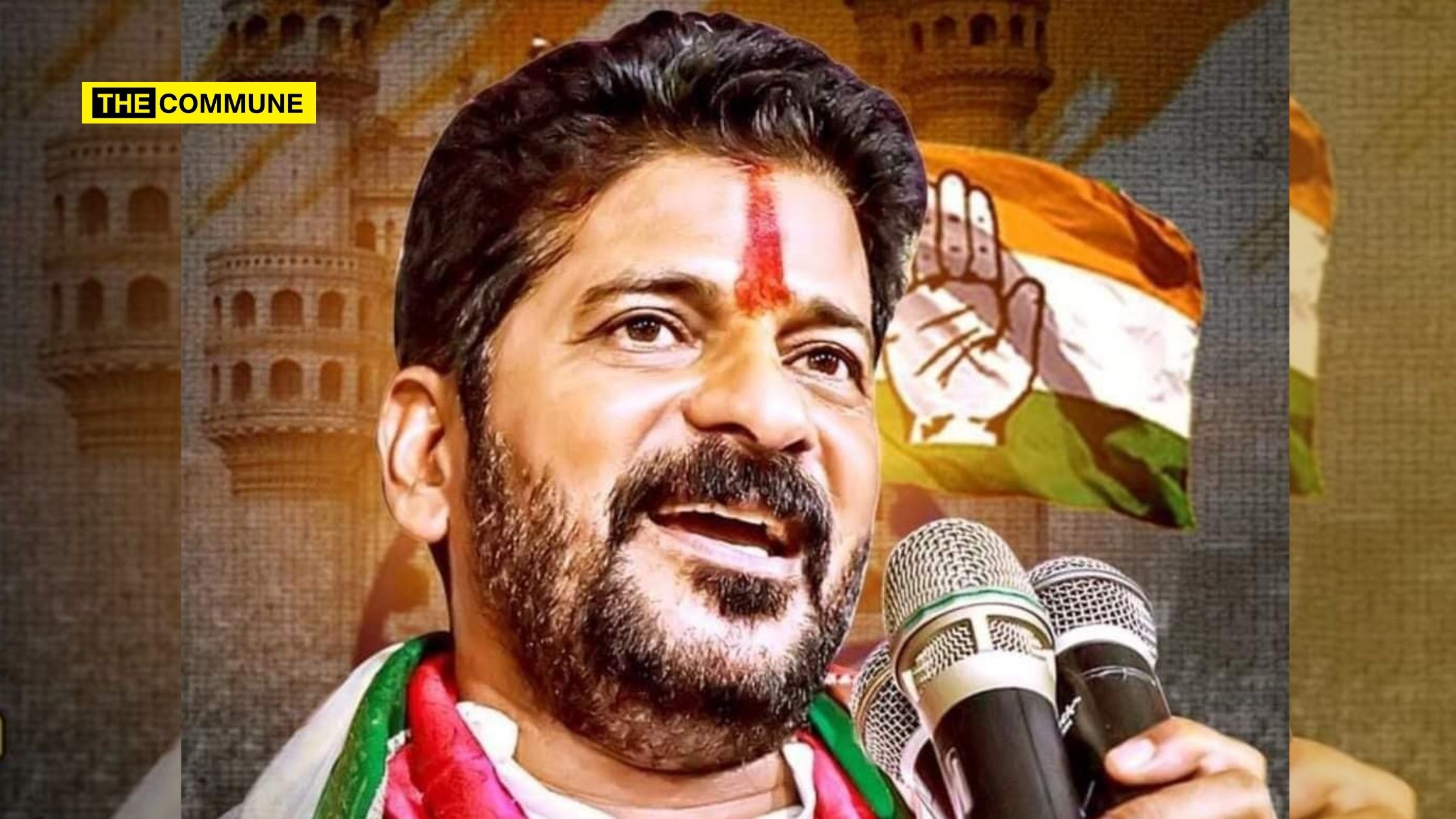
The post electoral analysis on the Telangana state elections has a telling story. Analysts and common people alike, are questioning the electoral result with many sharing the view, that most voters displayed a faith in a man called Revanth Reddy, rather than the party he represented. People voted for Revanth, a “Non-Congress” Opposition leader, who joined the Congress party, as late as October 2017, after more than twenty five years of association with Non-Congress parties, including almost ten years with the TDP party. The electorate had voted for a leader whose face was printed on all the posters; they had not necessarily voted for the Congress party.
The Congress won 64 seats to the BRS party’s 39 seats – just over the 60 seats required, to win a majority in the 119-seat Telangana Assembly. The Congress won on a combination of a strong anti-incumbency wave against a decade-long, two consecutive term rule of the BRS party and an absence of a state-wide opposition – the TDP party had chosen not to contest in the 2023 elections and the BJP had only recently made inroads in to the state’s politics.
This analysis and grim realization, has resulted in a less than jubilant, anti – climactic ambience in the party’s offices and amongst the party’s leaders and cadre. Barring an expected celebration of reasonable cheer in Hyderabad, there were no grand celebrations held at the Congress headquarters in Delhi or the sight of “senior” Congress leaders giving grand speeches with hopes for 2024. The scaled-back, constrained, rather muted congratulatory celebrations, have a story to tell.
The Congress party’s national as well as regional leaders, understand that the party’s lone success in Telangana, against the brutal background of a humiliating, dust-biting defeat, in large, important states in the Hindi heartland, was NOT a result, merely, of its own merits, creativity or ingenious techniques. Instead, the Congress’s lone success in Telangana was a combination of several factors, that gave the party an edge in the recent elections. The people of the Telugu states and their political leaders, understand this well.
The Congress party barely managed to overcome in-fighting, a deep rift between old and new timers and deep hostilty to a “Non-Congress” team leader. It managed to win over the BRS, in an election predicted to be a close call between the two parties, because of a strong anti-incumbency wave and the TDP party’s decision not to fight this year’s elections in Telangana. The BJP worked on increasing its vote share and accomplished just that – it increased its seats from a mere 1 seat in 2018 to an impressive 8 seats in 2023.
In all fairness, the state’s Congress chief (effective June 2021 onwards) and sworn-in Chief Minister as of December 7, 2023, Anumula Revanth Reddy, did put in a lot of hard work and plenty of thought, regarding the management of an unruly team, its finances, election strategy and seat allotment. Yet, his work was made much easier by the circumstances in the state, without which, the Congress was not guaranteed an outright win. In fact, most of its own leaders had anticipated a hung assembly with chances of the BJP, playing king-maker in a choice between the Congress and the BRS. The Congress party was not seen cheering or appearing jubilant, right after the November 3 election date, as it was still not confident of a clear majority.
An important question being asked over and over again in local media and the vernacular press is, whether the people of Telangana had voted for the Congress party or more likely, voted for a leader like Revanth Reddy, a Non-Congress man, not representative of a typical Congress party culture. Were they hoping for a change from the ten year rule of the BRS leadership and did they see Revanth as their best currently available option, given the lack of another leader with better reputation? To many, the latter reason, the people’s vote for the individual, rather than the Congress party he joined quite late in his political career (specifically, his previous Non-Congress political background, reputation and respectability) appears to be the obvious answer.
In fact, Revanth had been an ABVP (the BJP’s student wing) man in his youth, before opting to join the Congress’s main opposition in Andhra and Telangana, the TDP party, in his later years. He is known to refer to TDP leader, Chandrababu Naidu as a mentor and a close friend. He was and continues to be a friend of the TDP leader, who is hoping to make a comeback in next year’s elections, in neighboring Andhra Pradesh. Revanth is seen as a man that the BJP can work with, on certain state-related matters.
Political insiders know that Revanth decided to quit the Telangana unit of the TDP with Naidu’s blessings, back in late 2017. The political events leading up to the TDP’s acceptance of Revanth’s resignation, are those surrounding a shady BRS government approved “sting” operation by the Telangana police, in which Revanth as a senior TDP leader and confidante of Chandrababu Naidu, was allegedly heard offering a bribe to a certain MLA, encouraging him to favour a TDP Legistative Council nominee in the MLC elections. The 2015 phone tapping operation, conducted by Telangana Police under the then Chandrasekhar Rao-led, BRS government, implicating Revanth and by extension, Naidu, created political circumstances, which eventually led to Revanth leaving the Telangana unit of the TDP party with Chandrababu Naidu’s blessings.
A look at the combination of factors that helped the Congress’s win in Telangana, without which, its victory was not guaranteed:
1) K Chandrasekhar Rao’s incumbent BRS party government was facing a strong anti-incumbency wave after almost ten years and two consecutive terms in power.
2) N Chandrababu Naidu’s TDP party decided to withdraw its participation from the 2023 Telangana elections, in a bid to focus its energy on defeating the YSRCP party in the upcoming 2024 Andhra Pradesh state elections.
3) The traditional TDP party segments of voters and the TDP party cadre in Telangana, favoured the ex-TDP strong-man and Chandrababu Naidu confidante, Revanth Reddy and his team, instead of the BRS leaders.
4) People of Andhra ancestry settled in Hyderabad city and other parts of Telangana (touted to be a significant percentage in certain electoral constituencies) voted en-masse in support of ex-TDP leader, Revanth Reddy, in an open protest of biased anti-Andhra statements. insults and treatment of Andhra Telugus, by the BRS’s Chandrasekhar Rao over the past decade.
5) K Chandrasekhar Rao hastily decided to field, over 90% of his party’s incumbent/sitting MLAs for a third successive time, instead of choosing a balance of old faces and new entrants. Most voters were expecting to see new faces, on account of dissatisfaction over rising corruption among the sitting BRS MLAs. It was a pre-concluded decision for voters to naturally pick local leaders of the main opposition party, as they were already experiencing anti-incumbency sentiments aside from the corruption issue.
6) While the first term (2014-2018) of the BRS government was generally known for its relatively low corruption levels, not impacting the common man’s monthly wage, the second consecutive term of the BRS party (2018-2023) came to be known for higher levels of corruption at all levels, eventually impacting the life of the common man.
7) Many people, across the class, gender and age divide, were also influenced by the political atrocities happening in neighboring Andhra. They sympathized with a leader like Chandrababu Naidu, who the people of Telangana recognize and acknowledge, as having brought modern technology and development to the larger, pre-bifurcated state of united A.P and Telangana.
The rather dramatic, midnight arrest of Naidu, a senior, septuagenarian political leader and three-time chief minister, on trumped up charges without substantial evidence, in September, barely three months before the Telangana elections, was a big news splash in both the Telugu states. The people of both states, sensed a level of convenient political cooperation and support between K Chandrasekar Rao of Telangana’s BRS party and Y S Jagan Reddy of Andhra’s YSRCP party. The political complicity between the two BRS and YSRCP leaders across state borders, in vengeful, unreasonable acts, utilizing state machinery, was seen to be distasteful, exploitative and unjust, by common people. Such political misjudgements in both states, motivated hordes of common people, to vote for Revanth Reddy, a man and leader with a different political and personal image than both Chandrasekhar Rao or Jagan Reddy – Revanth has a “clean” image and little political baggage. In both political and social circles, he is seen as a decent, family man, hitherto respected for his balanced views, behaviour and conduct, in both political and personal matters.
Shivani is a freelance writer based out of Vijayawada.
Subscribe to our channels on Telegram, WhatsApp, and Instagram and get the best stories of the day delivered to you personally.




